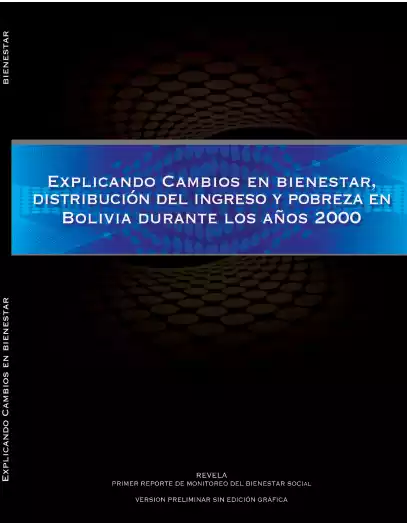
Year: 2014
Author(s): Werner Hernani L., Ahmed Eid,, Gary Mena, Paul Villarroel,, Alejandra Uribe y Rodrigo Aguirre
The report called “Changes in well-being, income distribution and poverty in Bolivia during the 2000s” is the First Monitoring Report on Social Welfare under the initiative of the Aru Foundation and the Socio-Economic Research Institute (IISEC) of the Bolivian Department of Economics. the Bolivian Catholic University (UCB), which had the support of the “International Development Research Center (IDRC)
This report summarizes the findings and results contained in several working documents prepared by researchers from the Aru Foundation and other entities. In the process, statistics were generated, hypotheses were raised, and methods were developed to answer three central questions on the agenda: What were the changes in the well-being of the Bolivian population in the 2000s? Where, when, and who benefited from the changes in well-being? And what were the causes that caused the changes in well-being in Bolivia? The documents used the household surveys harmonized by the Aru Foundation , a job that required enormous effort to generate consistency and comparability to the estimates throughout the period of analysis. The Report analyzes the recent history of changes in well-being in Bolivia that occurred between 1999 and 2011 under a conventional approach, which uses indicators with a monetary metric supported by social functions of well-being, among which measures of income distribution, inequality and poverty stand out. .



